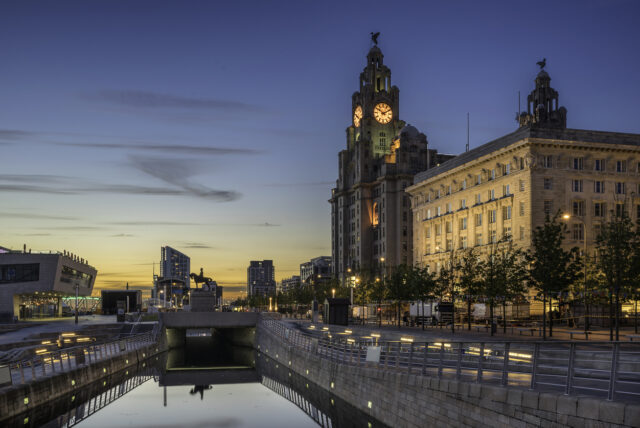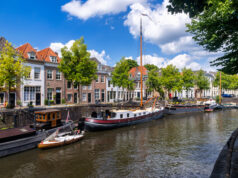The British city of Liverpool has been named the world’s first climate action Accelerator City.
The recognition was given by the United Nations’ Entertainment and Culture for Climate Action (ECCA) program, and was specifically for Liverpool’s commitment to innovation and smart regulation to decarbonise the live music and TV and film production sectors.
The city, famous as the home of the Beatles, has been a leader in decarbonising the two sectors, which both make a significant contribution to the Liverpool economy.
The decarbonisation efforts have been led over several years by Act 1.5, an artist-led research and action group, and climate scientists from the Tyndall Centre for Climate Change Research.
Councillor Liam Robinson, leader of Liverpool City Council, said Liverpool is ready to apply its best efforts to tackling “the biggest challenge humanity faces”.
“What is so fantastic about this status is not just the plans we have to help decarbonise music, events and filming, but also the way that this project will educate and motivate audiences through something they really care about – music and entertainment,” said Robinson.
“By bringing innovation to the sectors that define us – like music, film and TV – we’re showing the world how culture can drive real, meaningful climate action”
To mark the launch of this initiative, the city announced a number of events beginning with a three-night live music series at Liverpool Arena from 28-30 November in collaboration with recording artists Massive Attack, ACT 1.5 and SJM, to showcase innovations in sustainability and the smart design of live music events.
This will be followed at the end of November by an industry event, Expedition 1, and a public event which will test and showcase eight cross-sectoral pilot projects for rapid decarbonisation across live music, TV and film productions scheduled in 2025.
The public will then be invited to participate in climate action workshops, live audience podcasts, and performances.
In parallel, Liverpool will power all key live music and filming locations in the city with renewable energy.
Major events will also need to meet a new Paris 1.5-degree compatible sustainability standard in order to be granted a land use agreement.
Also in October, Liverpool city council’s GreenUP rewilding project took out prizes at an international climate change award ceremony.
The Urban GreenUP project aims to rewild built up areas, improving air and water quality in the process.
Initiatives have included urban raingardens, green walls and pollinator posts around the city centre, in addition to a number of floating islands in the city’s docks and parks.
The scheme was funded by the European Union, with Liverpool winning awards for the categories of innovation, habitat creation project of the year and biodiversity overall at the CIRIA 2024 Big Biodiversity Awards.














